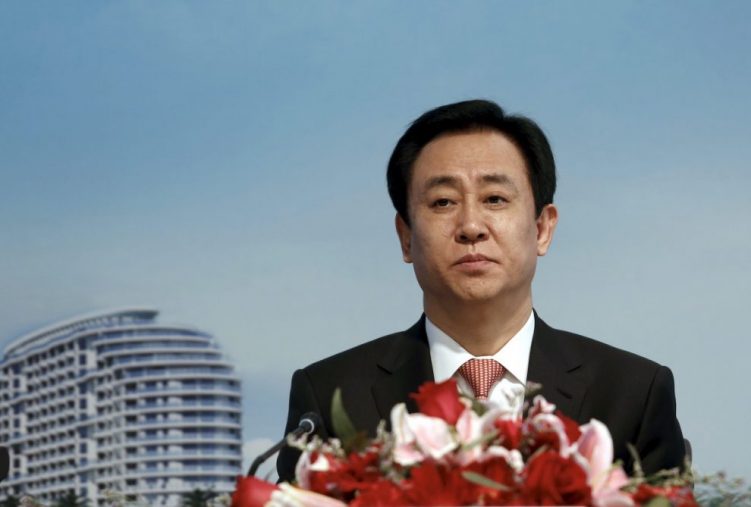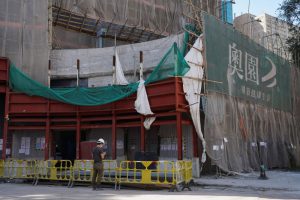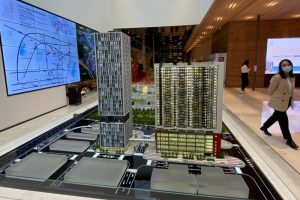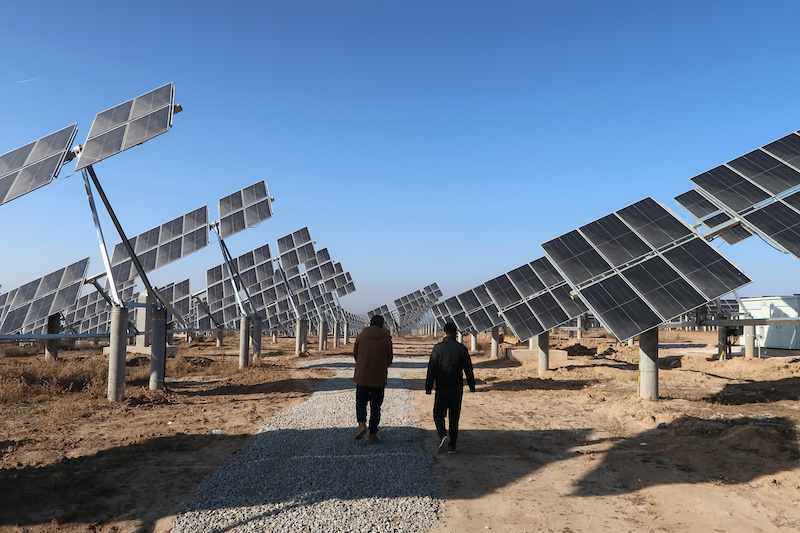The chairman of China Evergrande Group Hui Ka Yan (aka Xu Jiayin) sold 1.2 billion shares in the company at an average price of HK$2.23 each on Thursday, Hong Kong Stock Exchange filings show.
The share sale, which is worth a total of HK$2.68 billion ($344 million), lowers Hui’s stake in the Shenzhen-based real estate company to 67.9% from 77%.
Evergrande has been stumbling from debt deadline to deadline as it grapples with more than $300 billion in liabilities and Chinese authorities have told Hui, 63, to use some of his personal wealth to help pay bondholders, sources have said.
Hui, who founded the property conglomerate, has been rushing to free up funds by selling luxury assets including art, calligraphy and three high-end homes, as well as planes that the company bought.
Evergrande failed to pay coupons totalling $82.5 million due on November 6 and investors are on tenterhooks to see if it can meet its obligations before a 30-day grace period ends on December 6.
Hui’s share sale represented a 19.8% discount to Wednesday’s closing price of HK$2.78. Data from the exchange shows block trades priced at HK$2.23 per share were carried out in the pre-market on Thursday.
Before the filings, Evergrande shares closed down 10.4% at HK$2.5, versus a 2.7% drop in the broader market.
Buyers Snap Up Property Bargains
Meanwhile, after years of expansion in Hong Kong, cash-strapped Chinese developers are reducing their presence in one of the world’s most expensive property markets, allowing firms in the financial hub to scoop up some of their assets at distressed prices.
Developers including China Evergrande Group and Kaisa Group Holdings, struggling under billions of dollars in debt, have sold some assets in recent months to Hong Kong developers to help ease liquidity stress back home.
And there’s more to come – Aoyuan Group, which this week extended the redemption date of onshore asset-backed securities, is trying to offload more Hong Kong properties to raise capital, two sources with knowledge of the matter said.
Aoyuan is planning to sell a redeveloped office building in Kwai Chung in eastern Hong Kong, and the bidders will likely be local investors or family offices, said the sources, declining to be named as the information is confidential.
The deal is expected to be sold at less than what Aoyuan paid for it, the sources added. Aoyuan bought the building for HK$950 million ($121.83 million) in 2018, and property agents estimate its current valuation at less than HK$800 million.
This will follow a deal in mid-November, when Aoyuan sold some assets in a residential development in the Mid-Levels to a Hong Kong investor at a loss of HK$177 million.
Aoyuan could not be reached for comment via its officially-listed email and calls to the company went unanswered.
The trend will help Hong Kong property tycoons to further boost their dominance in the Chinese-controlled territory.
Once deep-pocketed Chinese developers had moved aggressively into Hong Kong, outbidding their cross-border rivals for prime sites in the city as they searched for investment opportunities outside the mainland.
But now those developers are facing an unprecedented cash crunch due to regulatory curbs as Beijing tries to reduce leverage in the sector, causing some to miss bond and wealth management product payments.
Some builders have resorted to selling their assets to meet near-term repayment obligations.
Trend Reversal
“It’s a reversal of the trend,” said Reeves Yan, CBRE head of capital markets in Hong Kong. “Chinese developers with liquidity crunch are now selling, and it is expected that there will be more selling in the next few months [in Hong Kong.]”
Kaisa, which missed coupon payments totalling $88.4 million due earlier this month, sold a residential land parcel in Kai Tak, where Hong Kong’s old airport was situated, to local peers Far East Consortium and New World Development on Wednesday for a consideration of HK$7.9 billion, a stock exchange filing said.
It recently sold another parcel in Tuen Mun in northern Hong Kong to local investor Francis Choi for HK$3.78 billion. The sale helped Kaisa recover around HK$1.3 billion cash after repaying the loans it borrowed for the land.
Kaisa declined to comment.
Evergrande, which is grappling with more than $300 billion in liabilities, has transferred unsold units worth HK$2 billion in a residential development to its joint-venture partner VMS Group, a Hong Kong financial company, a separate source also revealed. Evergrande did not respond to a request for comment.
So far this year, taking into account only government land sales and not private ones between developers, only one Chinese property firm was involved in a land purchase worth HK$7.3 billion, which it jointly invested in with four Hong Kong peers.
That compared with a total of HK$39 billion spent last year and a record of HK$58 billion in 2017, according to data compiled by CBRE.
Some financially stronger Chinese developers are, however, still active in the market, sector observers said.
In the city’s last residential land auction in October, state-owned China Overseas Land was the only Chinese company among the 16 bidders, though it did not win.
“The state-owned developers are still cash-rich, but the property market will be led more by Hong Kong investors going forward,” Tom Ko, Cushman & Wakefield’s Hong Kong capital markets executive director, said.
• Reuters with additional editing by Jim Pollard
ALSO SEE:
S&P Says Evergrande Default ‘Highly Likely’ as $3.5bn Debt Looms
Evergrande Bondholders Get Overdue Bond Coupon Payments
Evergrande Boss Seen Selling Art and Homes to Pay Debt
The Self-Made Chinese Billionaire Battling To Save Debt-Ridden Evergrande






















